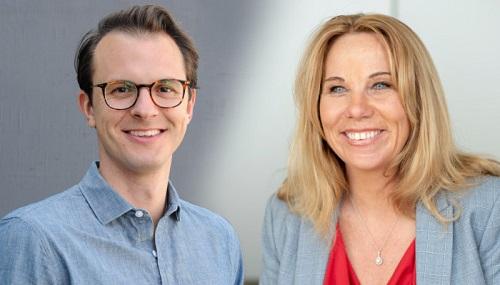A record £1.3bn value in UK agri-tech deals was reached in 2021*, showing sustained interest in technologies that offer solutions to the challenges of rising input costs, food security and environmental impacts. Behind the headlines is a strong pipeline of early-stage companies considering the best strategy for investment and the growing number of options for accessing and structuring funding.
Recent deals across the Agri-TechE ecosystem include: DroneAg, which exceeded its crowdfunding target of £500k with the support of individuals, including farmers keen to use its automated drones; Glaia, which raised £1m from the Green Angels Syndicate of high net-worth individuals who see its disruptive ‘sugar-dot’ technology as transformational; Breedr, which has attracted £12m from a number of funding rounds that have included public money and corporates from within the value chain; and insect-tech company Better Origin, which announced $16m from Venture Capitalists.
Speaking ahead of the event, Steve Thackwray, Director at PwC, comments: “What's right for any one business will be driven by specific needs and ambitions; it is important to ensure all sensible avenues are explored before selecting what is right for you and your business.”
Jodi Bartin, CEO of the financial advisory company Citicourt & Co, agrees. She says that although Citcourt mostly works with institutional investors (banks, pension funds) – meaning for funding they are looking at companies over £5m – she is happy to advise companies of all sizes and help point them in the right direction: “It is not unusual for someone to come in thinking they want to do one thing – to sell up, for example – and then realise they have other options after they have spoken to us.”
Greg Michel counsels that companies should consider all their options and it pays to choose your investor carefully. Greg is an Investment Partner at Cell Capital, which has recently worked with agri-tech start-ups Breedr and Bon Vivant. He explains that the focus for founders is increasingly on finding ‘smart capital’, a term referring to investors bringing greater value than just money to the founders.
He says: “Investors can bring entrepreneurial expertise, sector experience or specific industry connections, which are invaluable to early-stage companies.”
Cell Capital is built around a number of thematic funds, where the capital has already been set aside and is ready for investment. Each fund is managed according to a strategy co-developed with the investors, who comprise family offices, high net worth individuals, corporates are traditional funds. The company calls this ‘Venture Capital as a service’ (VCaaS).
Greg explains: “We are the advisors to the Investbridge Agritech VC Fund, which is currently reaching the first close. We're aiming for a final close of $40M. This will give us ample firepower to build a healthy portfolio and to provide follow-on as required. So far, we've led or been co-lead in three out of our five agrifoodtech portfolio companies.
“The start-up interacts with us during the whole lifecycle of the investment, simplifying the process and building up a strong relationship. In addition to these funds, we also have the ability to go in earlier than seed funding for extremely compelling companies.”
A couple of companies in the vertical farming sector have used SPACs recently to raise funds. In a volatile market, companies working towards an IPO (Initial Public Offering) sometimes consider merging with a Special Purpose Acquisitions Company or ‘SPAC’ as an alternative to going it alone. A SPAC is essentially a shell company set up by investors with the sole purpose of raising money and acquiring another company.
In 2021, AeroFarms announced a SPAC deal with Spring Valley Acquisition Corp, but this was subsequently called off. Kalera announced in Feb 2022 that it was planning to use a SPAC to hit the Nasdaq, and this deal, if approved, would give the combined company an equity value of $375 million.
Steve Thackwray continues: “A SPAC merger is just another way of taking a company private and raising significant capital to drive future growth. It can cut some of the complexities associated with a traditional IPO. They are typically faster to complete, mitigate the risk of price being impacted by market volatility and brings you into partnership with the SPAC Sponsor team, potentially providing additional financial and sector expertise, but there are downsides and the company needs to be well advised.”
Alternative food products and dairy and meat replacements seem to be grabbing the headlines and the funds, but Greg says that the complexities of this sector may not be fully understood by non-specialists and the companies will need large amounts of capex (capital expenditure) to scale.
“We are seeing interest for a much wider set of opportunities. Generalist investors will gravitate towards what they understand; for example, ‘software as a service’ business models that create datasets in ag are very powerful. Among the specialist investors we have seen strong interest for biopesticides, biostimulants, solutions for controlled environment agriculture, irrigation, epigenetics, traceability and post-harvest treatments.
“The sector is buoyant at the moment and we are seeing a lot of interest in investment.”
Jodi Bartin will be chairing the online Agri-TechE event ‘Focus on Agri-Finance’ on Wednesday 18th May at 13:00, where Steve Thackwray will be joined by Greg Michel, Jack Wrangham of DroneAG, Hannah Smith of Anglia Capital Group and Mark Lempriere of Lombard to discuss different finance models. To register visit agri-tech-e.co.uk/events.
* 2022 AgFunder AgriFoodTech Investment Report (agfunder.com/research/2022-agfunder-agrifoodtech-investment-report/)
[image shows Greg Michel and Jodi Bartin (credit: Cell Capital / Citicourt & Co)]


